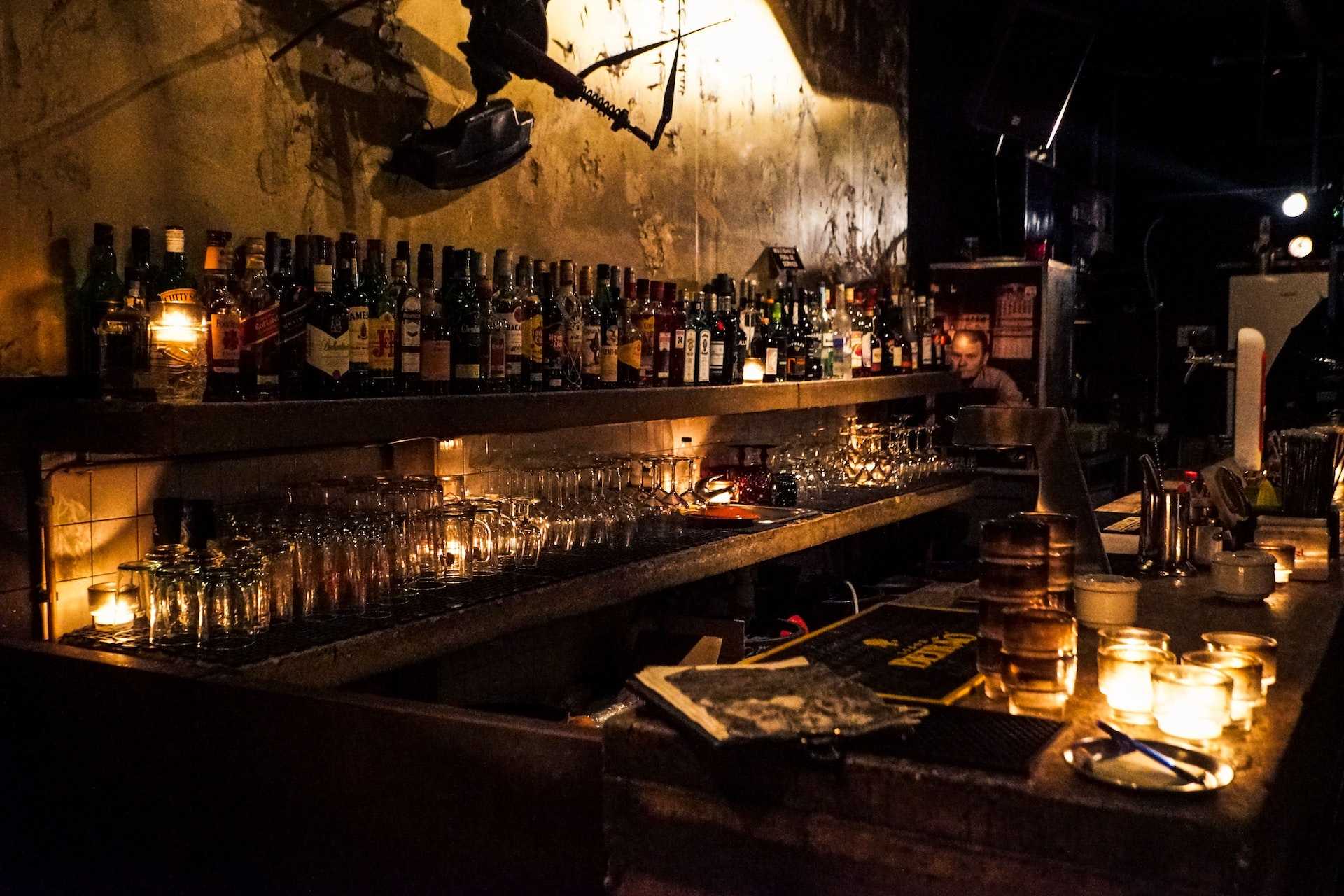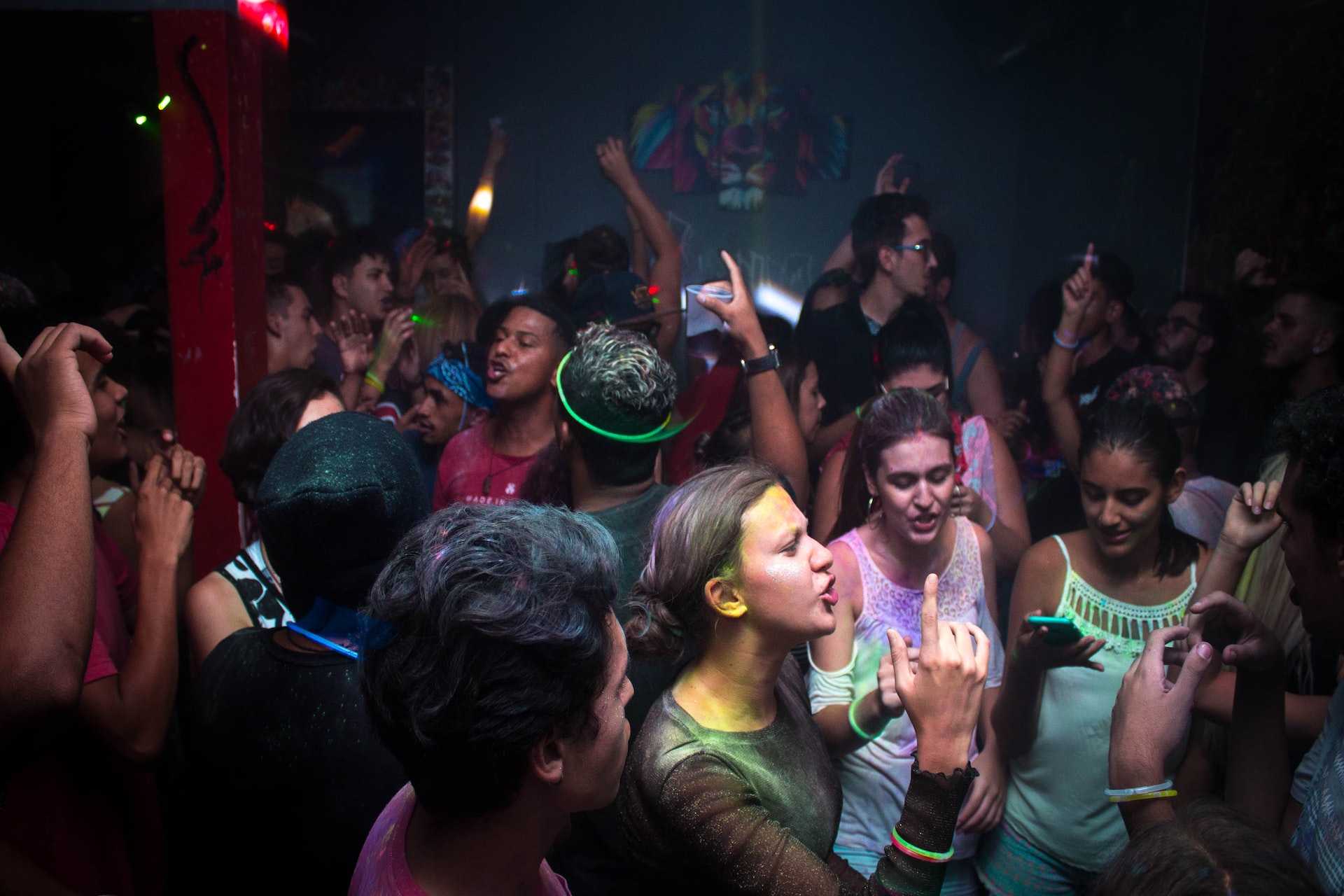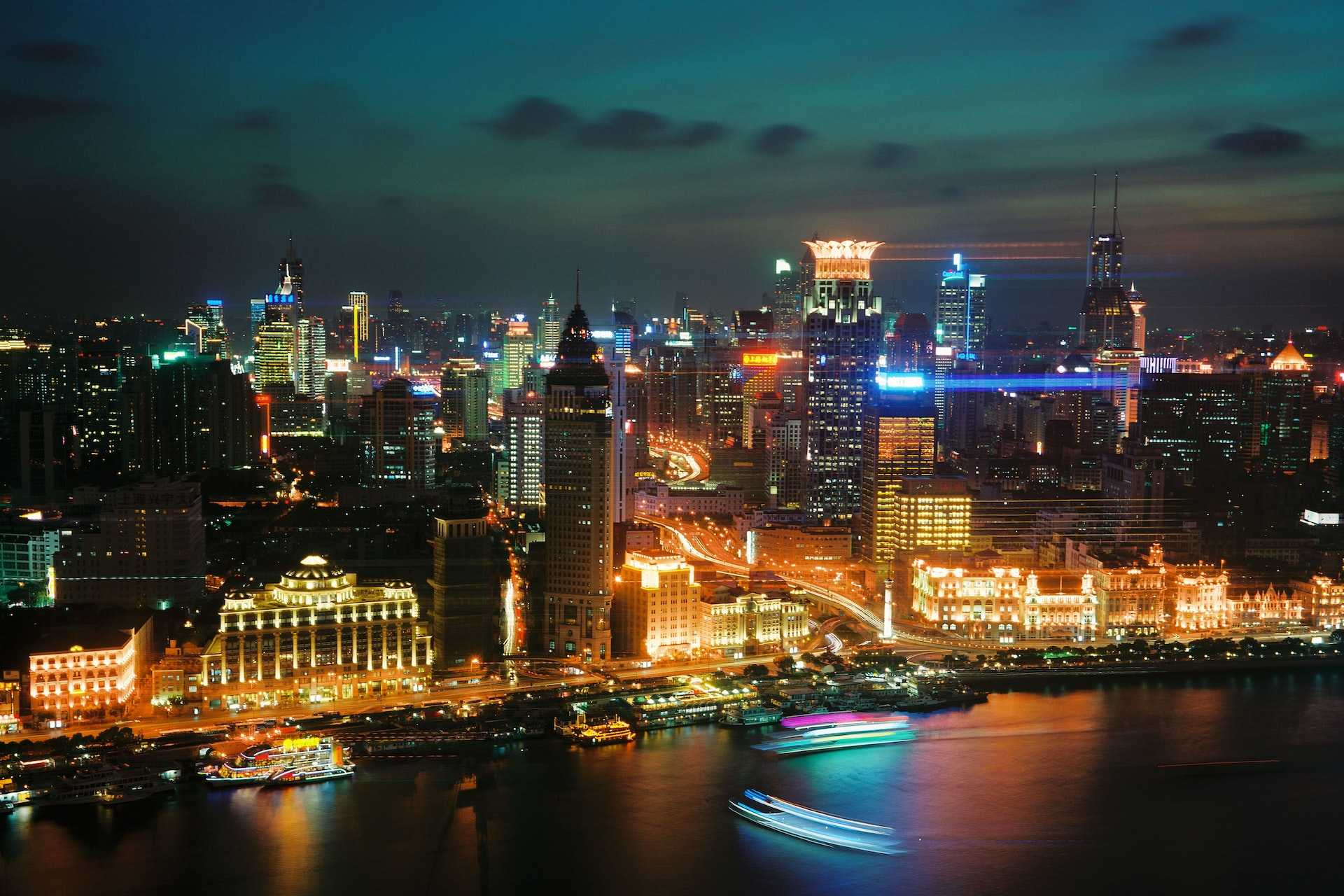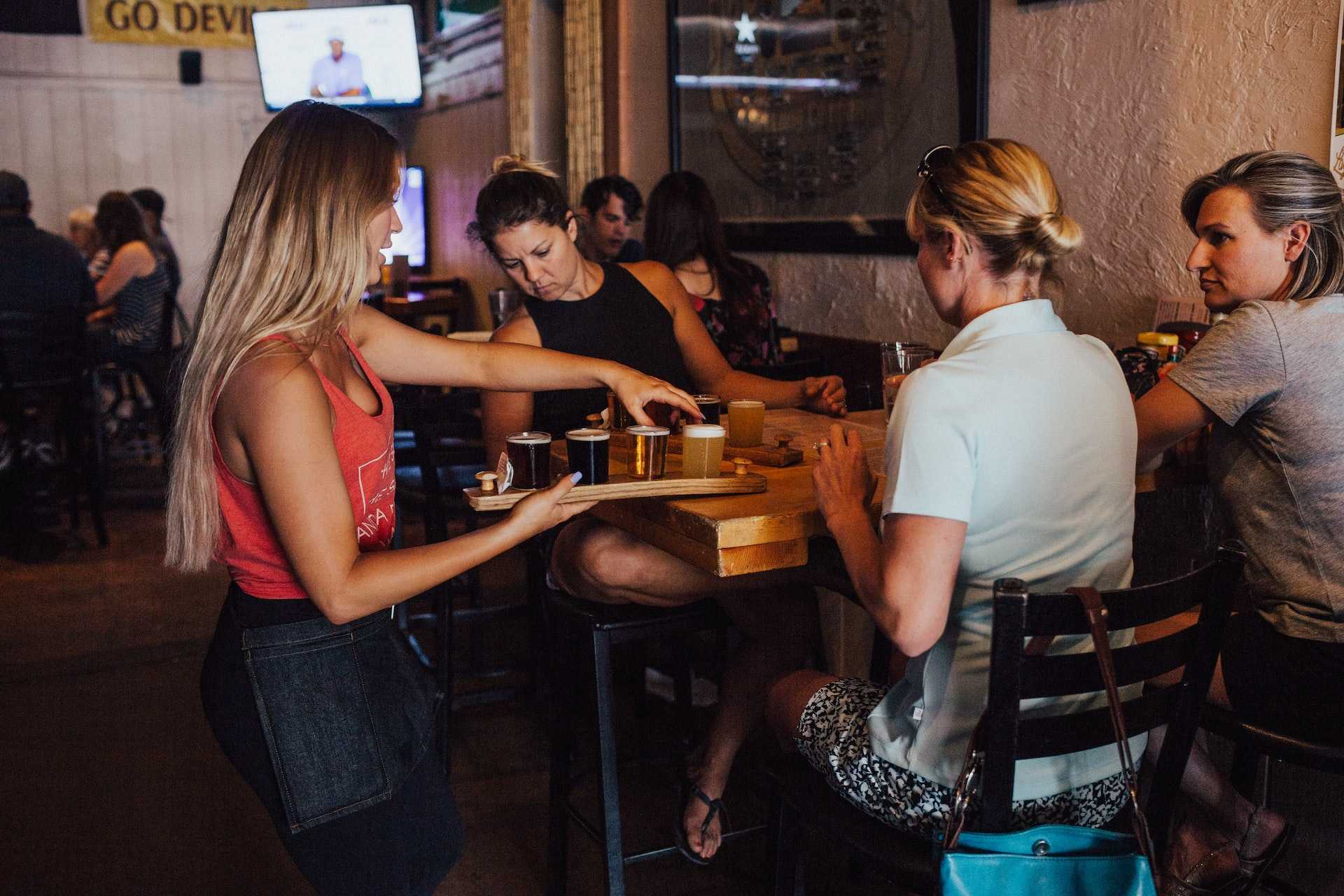Register now to join Ufos Travel and make travel friends around the world
Login to follow friends and send messages. No Account? Register
×
I still remember that in the movie "Midnight in Paris", the male protagonist was walking on the streets of Huadu in the middle of the night, and got into a car that took him to a mysterious bar. During this time, he always met famous creative people in history such as Hemingway, Picasso, Dali, and Gauguin. People on earth have had a drinking culture for thousands of years. Basically, wherever there are people, alcohol will be produced. From the game "Assassin's Creed" series, you will find that there are bars in every city. Even in the future world or outer space, there are still There will be a bar.

However, it’s not that alcohol can only be sold at night. It’s just the so-called nightlife that makes many people associate night with alcohol. And strictly speaking, many places that sell alcohol cannot be called bars. Each place is more or less different due to different drinking cultures and habits. When watching a martial arts movie, you won’t think that a place where the waiter in a store makes a daughter red is called a bar. So if I have to say it, the first place in the world where bars appeared was probably either Egypt or China.
If the United Kingdom is taken as an example, its division may be more generally accepted. The so-called "Pub" is taken from the first three letters of Public House. It is basically a place where people drink, chat, and sometimes watch football games. Depending on the owner, they may play different styles of music every day. It is very lively, and the customers are mostly different. Draft beer, or simple cocktails, are more approachable and have a civilian feel. There are many stores of this type in the UK, just like in the movie "Kingsman", and they usually open at noon. British people love to drink. Even the student activity center of the university starts selling alcohol at 11:00. Many people finish a drink before going to class.
In addition, if it is said to be a "Bar", it refers to a more social place, with bartending, cocktails, etc. as the main items, and the atmosphere is relatively calm and restrained. The other type is "Club", which basically means a dance hall. Some are membership-based, but basically you have to pay to enter. Where did the ballroom come from? It is the French word disothèque. In other words, the term came from France. It refers to a group of people renting a venue for an event at that time, and the participants could dance (and drink) to their heart's content. It is actually not directly related to the music type Disco.

You need to take a precaution first. These classifications are only for reference and there is no absolute strict distinction. Nowadays, many occasions have become complex. In Taiwan, it is customary to call dance halls nightclubs, Pub and Bar collectively called bars, and those with escort services are hotels. . Think about it, if we talk about nightlife in Greater China, we really have to go back to Shanghai. That type of "nightclub" is not original, but is a compromise among many different influences, but the form is similar, and most of them have food, performances, and band accompaniment for dancing and enjoyment. Slowly, such clubs disappeared, and local small clubs, hotels, dance halls and dance halls took their place and continued to evolve and change.

It is actually very interesting to bring the topic back and narrow the scope a little, and just talk about Taipei in the past 30 years. There were not many so-called dance halls at that time. The more famous ones were KISS in the Zhongtai Hotel and the dance halls invested by artists. What’s cooler is that there is a dance hall upstairs in the Ximending Lion Forest with a single admission of 100 yuan, and it is open during the day. But the more popular ones back then were Live Houses, such as HARD ROCK CAFÉ, which once had Lin Xiaopei and He Xinsui as resident singers, as well as EZ5, EZ9, and even a stage extended from the folk song restaurant, where you could eat, drink and listen to songs. It's very romantic that after so many years, several Western music lovers opened a MUSIC CORNER on Jianguo North Road in Taipei City and even performed on stage themselves.
Of course, the ethnic group there is relatively older now. Young people all go to the business district of National Normal University and National Taiwan University. The area along Heping East Road seems to have its own style. Foreign students and creative people don't like to sleep in the middle of the night, and there are also late-night cafes. Stretching from the above-mentioned National Normal University shopping district near Roosevelt Road and Taishun Street to the bar currently known as the "Playground", this area has the top three most dangerous stairs in Taipei, as well as the strongest smell of smoke and alcohol, but It's also a very interesting place.
Any findings? Most of these are spread with "rock music" as the main axis. But most of my impressions of nightclubs are still electronic music or hip-hop. There was a time when world-class DJs performed almost every weekend. Gradually electronic music parties became a very popular theme event, whether it was Taiwan’s own events, as well as well-known foreign brands. The movie theater next to Guting Station was originally converted into Live House, and soon after it was converted into a nightclub called 2F, planned by The Loop team who later moved to the East District.
2F is probably the first production team and location in Taipei that caters specifically to demands, and their second brand, LUXY, should be considered the beginning of the era of nightclub war in Taipei. East District, Jinghua City, and Xinyi District are three iconic areas with stores with different characteristics. Later, the international brand MoS (Ministry of Sound) also entered Dazhi. The period after the turn of the millennium was also the era when hip-hop and electronic music were most popular. The "Top 100 DJs" became the electronic music enlightenment for many people.
Interestingly, in the past, electronic music was very carefully classified into styles such as TECHNO, HOUSE, and TRANCE. Gradually, those boundaries became more and more blurred, and it also became mainstream music (for example, the once very popular Lena Fujii collaborated with DJ Kawazaki , or even a transformed Kylie Minogue), and later EDM. Japanese record stores once carefully classified them, and later they were collectively called Club Music. It didn't necessarily mean playing music in nightclubs, but specifically refers to electronic music. After all, nightclubs play this kind of music. There are many nightclubs classified by music type, and there are also many complex nightclubs, with different music in different halls (spaces). So usually in the elevator, there will be hip-hop guys wearing loose clothes and electronic music girls wearing tight clothes at the same time. If you add in the drunk and sleeping people on the roadside and the scheduled taxis, going to nightclubs has become a leisure hobby for many people, and even a routine every weekend.
In addition to nightclubs, what has changed more are bars. In the past, there were not many choices. The stores did not have many themed decorations, and customers mainly went to drink and chat. But since the emergence of IN HOUSE and the defunct NAOMI, the theme and atmosphere have become more important. After all, although these two stores did not say so clearly, "model" is the keyword. The waitresses with model looks (mostly amateur models), and even the indoor circulation lines are designed like a catwalk. No matter what kind of drink you drink, the atmosphere and aura are very strong. However, the trend of drinking is still towards nightclubs. Although there are still bars like BARCODE and FRANK, it is relatively difficult to chat easily (on the one hand, there are too many temptations), so in terms of demand, dancing is not There is no need for a dance floor, and there is no need for a stage if you don’t want to watch the show. Bars are more suitable for such people. And to put it bluntly, if you really want to drink seriously in a bar, you will be in a very strong state.

In terms of modern bartending, Xinyi Road and Anhe Road in Da'an District are still the areas with the most bars in Taipei City. The old MOD, Taipei Shinhwa (now out of business), gave birth to many famous Bartenders. However, in the past, bartending was mostly based on classics. A few bartenders had their own creative ideas, but not many customers ordered them.
With the help of wine merchants and changes in the atmosphere, a new wave of bar impact ushered in about ten years ago. The young Bartender took creative bartending as his pursuit. He not only participated in competitions and won awards, but also created a trend that is in line with international standards. Therefore, the so-called "Asia's Top 50" also has the award-winning Bartender, making "creative bartending" the protagonist of this wave of impact. At the same time, the number of restaurants and bars has also increased, and many excellent bartenders have also been trained. Although this is also related to the fact that more and more wine merchants have entered the Taiwan market and actively "promote consumption" in various ways, as a consumer, I am very optimistic about the results, and it also gives those who are interested in this more opportunities to perform. .
In recent years, as the number of stores and people who like to go to bars has increased rapidly, some stores, drinkers, peers, and the media have begun to organize various bar activities. The British Bar Hopping or Bar Crawl style has been introduced to Taiwan, and many people I have to go to several stores in one night. But to be honest, in the end, everyone who loves to drink has a few shops that he often goes to. The focus is on the shop that makes him feel at ease and comfortable. It may be the last stop, or it may be where he stays all night.
The development and emergence of culture and phenomena require people to brew and operate over time. Now there are many stores and teams all over Taiwan, whether it is music as the appeal (such as a specific music type, or even anime songs) , or with wine as the protagonist. Although there are fewer large parties, there are many more interesting activities. Shopkeepers also interact with each other, and customers are happy to have a drink here and there. Everyone has their own reasons for going to nightclubs or bars, but you still have to be careful. In addition to not driving drunk, drinking too much can still hurt your money and your body.
|
 Beitou Hot Spring Hotel, Huashan 1914, Taipei 101 Half Day Check-in
685 Read
Beitou Hot Spring Hotel, Huashan 1914, Taipei 101 Half Day Check-in
685 Read
 Tainan H VILLA METRO Hotel, every room has a private swimming pool and parking space
438 Read
Tainan H VILLA METRO Hotel, every room has a private swimming pool and parking space
438 Read
 Singapore Hot Spa Relaxation Spa Massage Experience
791 Read
Singapore Hot Spa Relaxation Spa Massage Experience
791 Read
 St. Joseph's Seminary and Church, winner of the UNESCO Asia-Pacific Heritage Conservation Award in 2001
1037 Read
St. Joseph's Seminary and Church, winner of the UNESCO Asia-Pacific Heritage Conservation Award in 2001
1037 Read
 Android APP
Android APP IOS APP
IOS APP